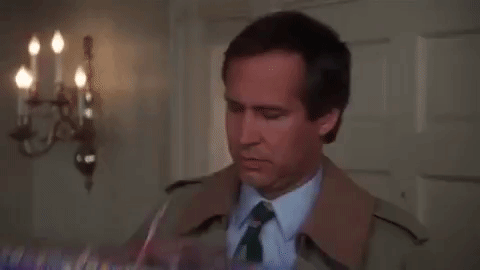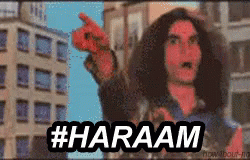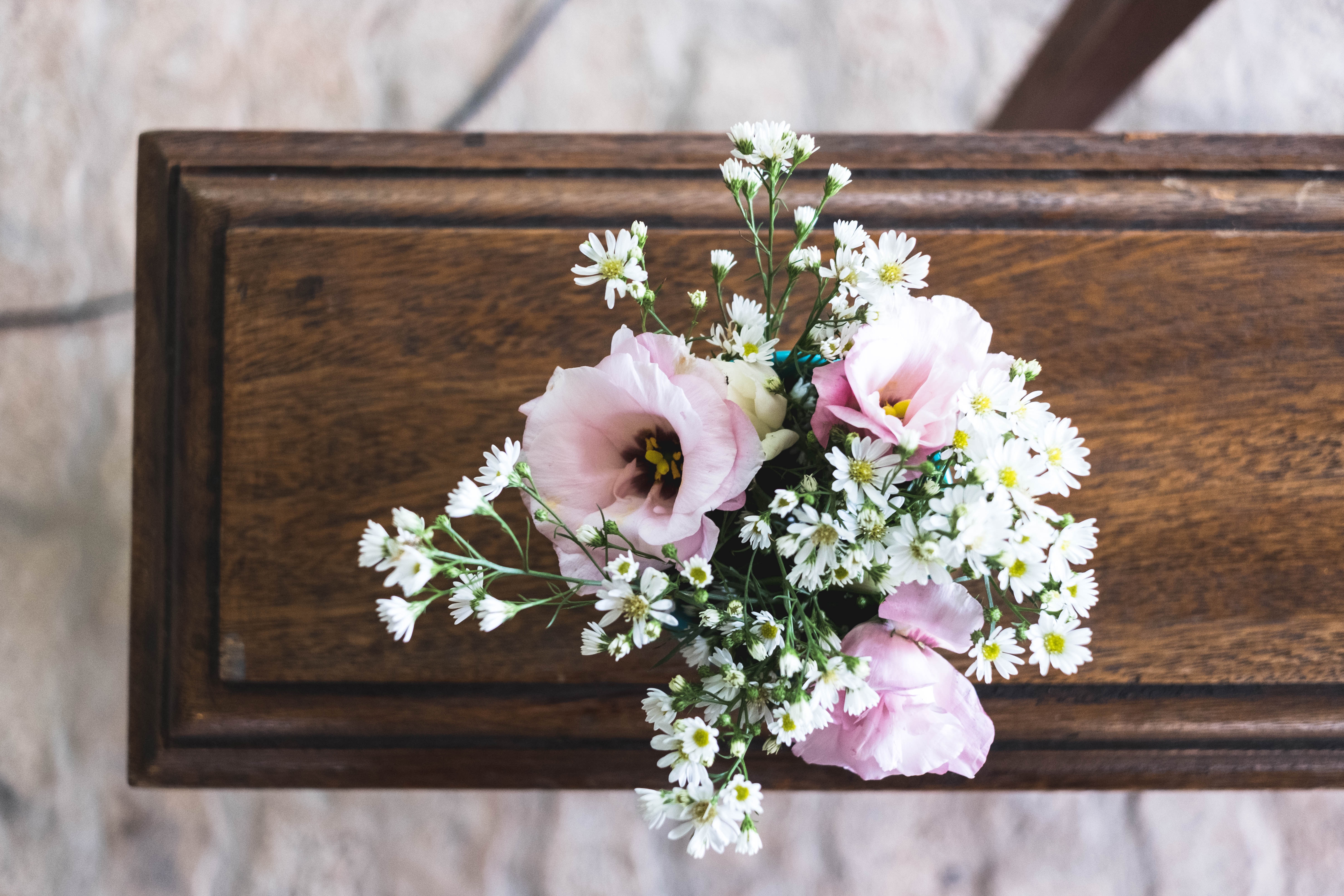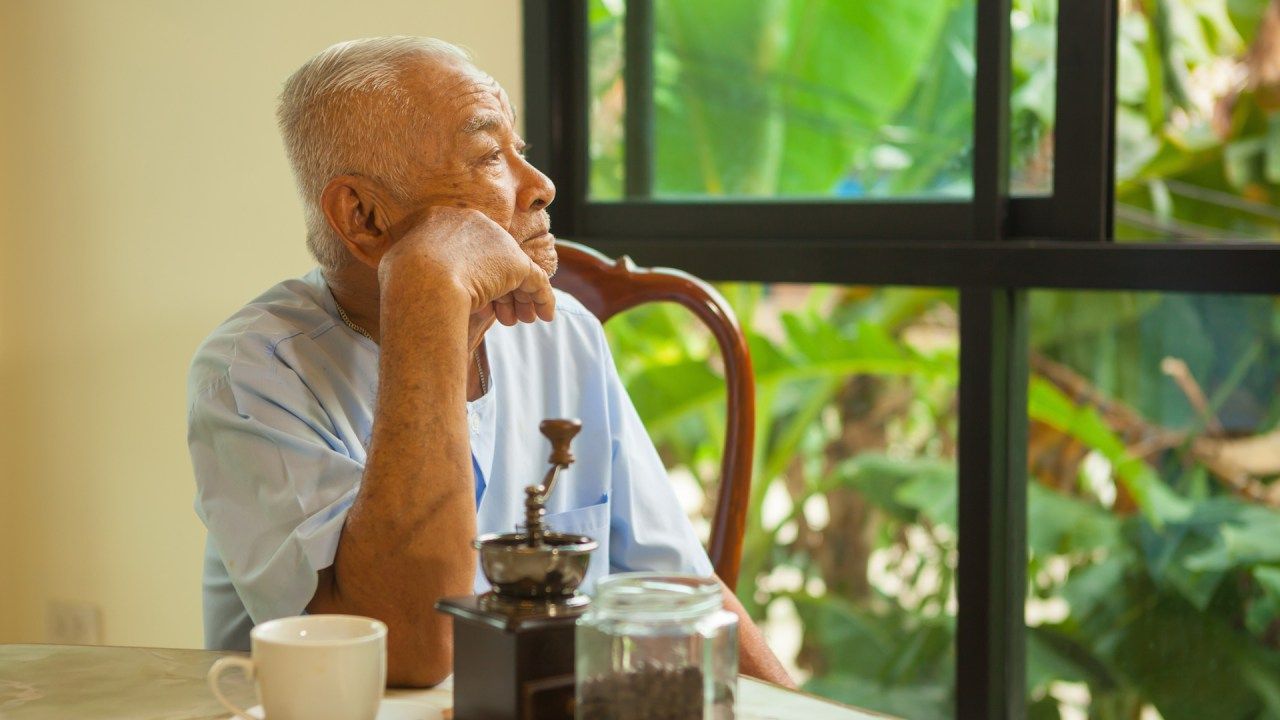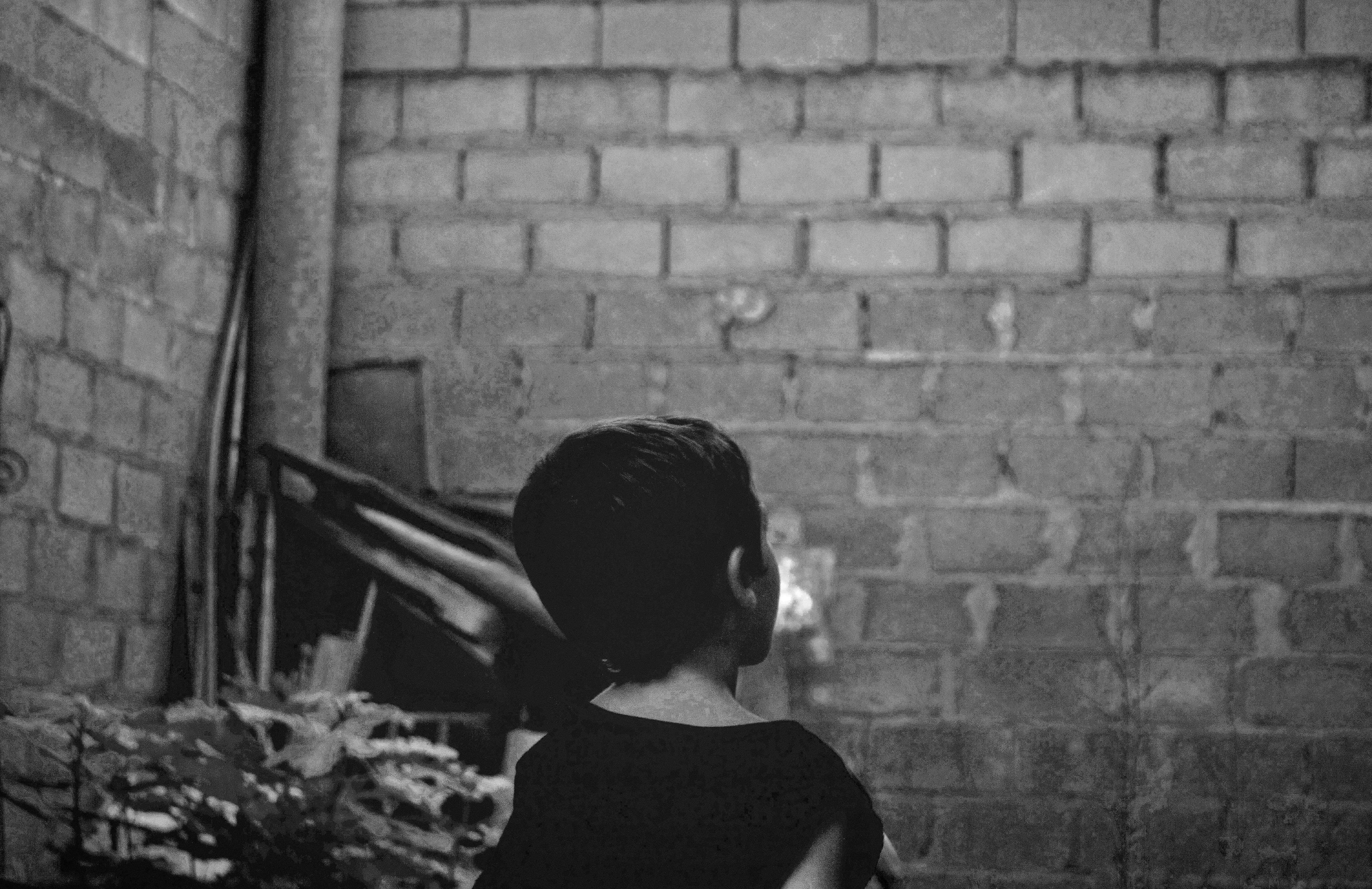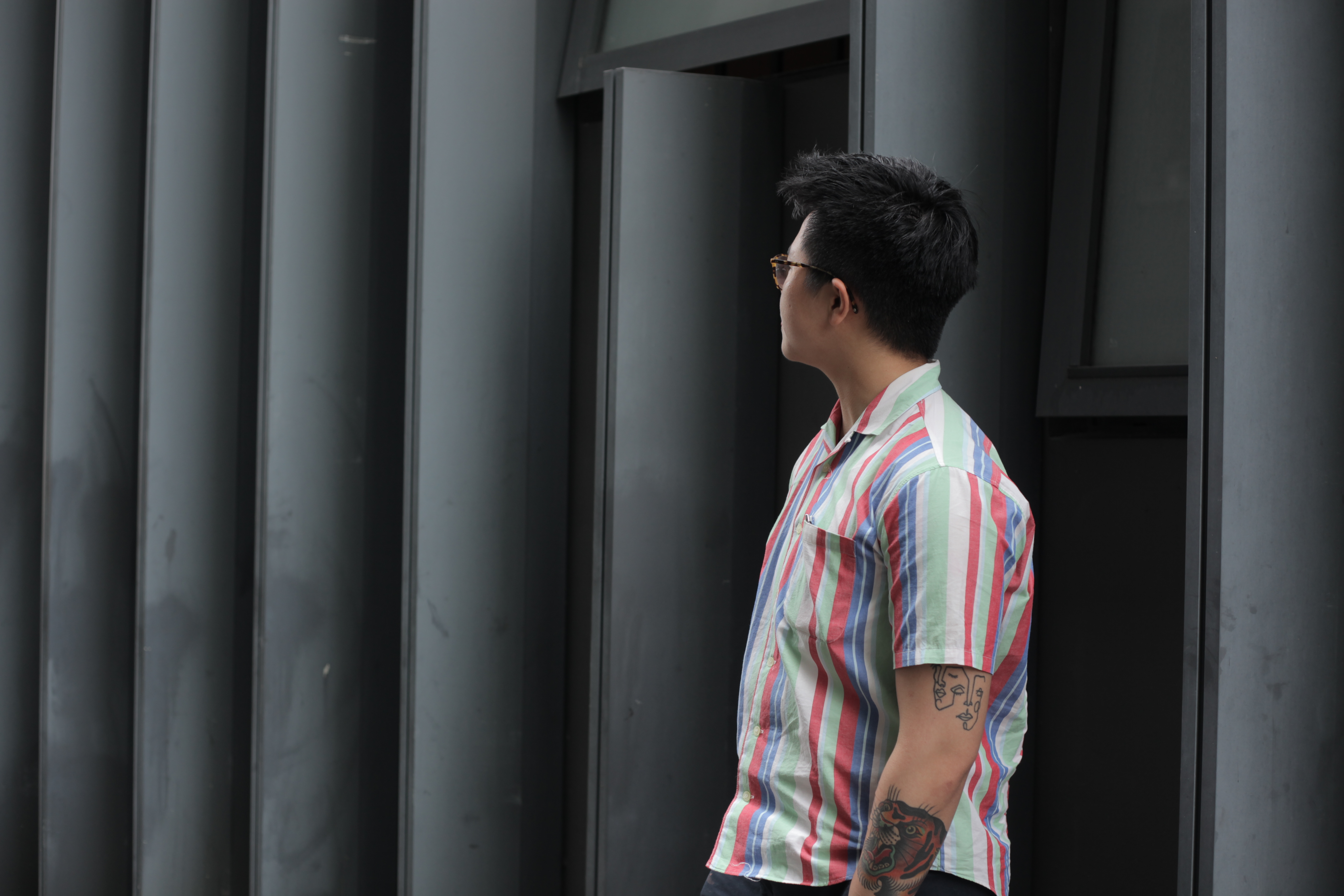I never knew it would hit me because I have never been the emotional type, but it did, and it has been a heck of a roller coaster ride.
Slightly more than a year ago, I gave birth to Kayla, and for the first three months after, I struggled with this constant ball of fear in my chest. I had no appetite for meals, I cried everyday, I lost weight, and my milk supply dipped so fast that I couldn’t breastfeed even if I wanted to.
As a first-time mother, I was overwhelmed by this new lifestyle that no amount of preparation could truly prepare me for.
Initially, we didn’t plan for Kayla to happen, as my husband and I were only married for six months at that point. And to be very honest, I felt fear the moment I knew I was pregnant. I knew motherhood was not going to be a walk in the park because of the stories I have heard from fellow moms. I was terrified of what's ahead.
Unlike in school where there are lessons and ten year series to walk you through each subject, there is no ‘manual’ for motherhood. Everyone's experience is different and the only way to know what motherhood really is, is when you become a mother yourself.
Nonetheless, I prepared myself for motherhood in the possible ways I could: by making sure we had all the physical stuff ready. Things like the baby’s room, the milk bottles, and the medications. It was an assurance that at least, whatever we need will be available at our disposal when Kayla is born.
Then, Kayla Came
The first 28 days was a whirl, but at least I had a confinement nanny around. I was still recovering from the natural birth process and my stitches still hurt. I wasn’t very mobile. As I was breastfeeding, I couldn't get more than four hours of sleep each time. It was really tiring.
Deep down, it started to dawn on me how scary it was that I am now responsible for this little human being. However, I also wanted to give her the best I can, and I tried my best to learn as much as I could from my confinement nanny before she left. And when she left after the first month, I started to lose control.
I lived in constant fear and anxiety.
I'm a self-professed worrier. I think a lot and cannot help but imagine the worst scenarios that can happen. This made me feel anxious all the time.
As a first-time mother, you find yourself forming an idea of motherhood based on what you read on the internet and from other mommies. For me, what I read and hear became a set of expectations for myself. I started to follow these set of 'rules' religiously, and even if the most little of things go out of place, it'll mess me up.
For example, I would expect Kayla to take this number of naps a day, or to finish drinking this amount of milk, and I would get really worried when those 'quotas' are not hit. The pressure of living up to these expectations I placed on myself and the stress of feeling inadequate consumed me over time.
I didn’t know how to handle a child. I felt so lost and lonely. Motherhood was something so new to me and I was just so afraid that I wasn’t doing things right or wasn’t giving my best to my child. I wasn't even in the right state of mind. I was just this person following a schedule: always on stand-by to supply Kayla her next milk feed, change her diaper, burp her, and bathe her.
As a chirpy and outgoing person by nature, I knew something wasn’t right as I was crying every day. I lost all appetite for meals. Waking up every morning became a dreaded affair because I will be filled with anxiety the moment I opened my eyes, and that awful feeling would intensify through the day.
It was so mentally draining.
The Shame That Came With Having Postnatal Depression
I struggled with the thoughts of how it was possible for me to have depression. I was ashamed. A part of me felt like I had no right to feel this way since I had been looking forward to being a mother for the past 10 months. How could I be depressed now?
Fortunately, I saw what I was becoming, and I knew that this was not the kind of lifestyle I wish to continue with. It was so painful and stifling to be on the edge of a breakdown every single day.
I wanted the old Meiting back and with that realisation, I decided to open up. I sought help from my mom, whom gave me the chance to have a few hours off per week. I spoke to my husband as well, and I implored him to bring me to a doctor if I were to continue to cry for another week, as I knew I would need professional help.
When I did open up, things started to look better.
Learning To Let Go
In reality, when it comes to handling babies, things rarely goes according to plan.
My mother and husband played a big part in my recovery and it is their support that helped me come out of postnatal depression after two months. The subsequent six to eight months still saw me having moments of anxiety attacks, but it was manageable as I had learnt to talk about my depressive thoughts. And my family and friends became my wake up call.
My husband always tells me to let go and to just follow our daughter's cues. It is reminders like this that remind me of the pressure I had unwittingly placed on myself, and how I need to take it easy.
It’s now my second year as a mother. Looking back at myself as a mother back then, I’m grateful for whatever I had gone through.
I'm grateful for my child, Kayla. We did not plan for her to happen. But she is now, to me, the greatest gift from God. Kayla has completely changed my perspective as a person, and I have grown and learnt so much from being a mother.
This Mother’s Day, I'm also super thankful for my mom.
Without her, I will not be able to go back to work with a peace of mind. Without her, I don’t know how I would have been able to deal with my postnatal depression. Her unwavering love and support for Kayla and me have left a mark on me, and has shown me once again, what unconditional love is. And now that I've experienced it myself, I know how fortunate I am to be blessed with the role of a mother.
To all first-time mothers and mothers-to-be
No mothers talk about it, but postnatal depression is very real. It is common and 80% of my mommy friends have experienced it, be it in a mild or very serious form. Because nobody really talks about it, you will feel like postnatal depression isn’t ‘normal’ or ‘right’. I know this because those were emotions that I grappled with.
It sucked the life and joy out of me. It affected my husband and made him feel distanced from his once loving wife. It is important to acknowledge that these feelings of fear, doubt, anxiety, and sadness are very real, for this will help you get better.
The start of motherhood will seem scary and lonely, but it will get better. There will be bad days but the storm will pass and you will be fine.
Cherish the good times and learn from the rough ones. You’ll make it through eventually. There's nothing more rewarding and fulfilling than being a Mother. You'll love it. Maybe not now, but you will. We are made for this.
This story is written by Millennials of Singapore, as told to us by Lian Meiting.
Also read: These 14 Heartwarming Stories Show That A Mother's Love Is Like No Other.
(All images used in header image taken from Lian Meiting)
19th April 2019—The day before
5.30am
The first wave of ‘fake’ contractions kicked in at irregular intervals of 8 mins, 10 mins, 4 mins, and 6 mins. I recorded the duration and intervals of each wave on the contraction tracker app.
The day went on as per normal. My mother-in-law even packed chicken rice for Fong (my husband) and I and we had dinner at home.
12pm
I had a bloody show but the contractions slowly went away.
10pm
The contractions came again. This time, the contractions were starting to come on an average of 6 to 7 mins and the intensity of the pain was getting stronger. I tried lying down but it made me feel even worse. I couldn’t sleep.
I wondered: Is it another round of ‘fake’ contractions again? I wouldn’t want to make a wasted trip to the hospital. But if it were real, I would want to wait until it has passed midnight before we check in so that we wouldn’t be charged an additional night. So, the waiting game began.
I continued monitoring the contractions. The waves started to come in stronger and at shorter intervals. Fong had gone to bed and I started pacing around our bedroom.
I tried to find an optimal position that can help relieve the pain. I moved from sitting in the armchair to a standing position, to sitting down on the floor against the wardrobe, to sitting up on my bed, to lying down on my bed. I tried the deep breathing technique, hoping it will help. But nothing worked. I wondered if I should wake Fong up, but I wasn’t sure if this was the real deal, so I continued to time the contractions and endure the pain.
20th April 2019—The Day
2.30am
Fong was shifting around in his sleep when he accidentally kicked me. He woke up and found me sitting at the edge of the bed. I told him I was in pain and my contractions had been coming in fairly regular intervals. He suggested that we make our way to the hospital slowly, given that I already had a bloody show this afternoon.
He remained calm and collected as he started to do some last minute packing. I went to take a long shower, pausing to grab hold of the shower head pole whenever the contractions kicked in. Then, it finally dawned on me that buibui (my baby) is indeed coming. We made our way to Mount Elizabeth Novena Hospital once I was done.
4am
We checked in to the delivery suite. I was given enema to clear the bowels first before the nurses put me on IV drip to ensure I was hydrated throughout. The urine catheter was also put in place. The nurse then placed two sensors across my tummy using elastic straps, one to monitor the contractions, one to monitor buibui’s heartbeat. It was then she checked that I was already 4cm dilated.
5am
The anesthetist came and gave me the epidural. I was asked to arch my back as much as I could. She had to poke me twice or thrice because I moved.
Soon after, I could feel a cooling sensation down my back. The effects of the epidural kicked in around 15mins later when I felt both my legs go numb. I was also given oxytocin via drip in order to help labour progress. Once in a while, the nurse would come in and adjust the dosage of the epidural. This was to ensure that I could still feel some contractions so that I could push better later on.
8am
I felt tight contractions on my lower pelvis. The nurse checked and noticed that my water bag has burst and I was 8cm dilated. Buibui’s head was gradually moving down. I could start to feel the painful contractions again although I was on epidural.
This was the part where buibui’s heartbeat started to drop. The nurse quickly gave me the oxygen mask and started shaking my tummy as she tried to locate buibui’s heartbeat again. She shook my tummy multiple times and asked me to breathe in deeply. I could hear the monitor projecting a heartbeat that was slowing down.
After a few minutes, we finally managed to stabilise buibui’s heartbeat. You can only imagine how worried I was. The nurse explained the series of events to me and shut off the oxytocin drip. I didn’t dare to move an inch anymore.
9am
Stronger and stronger waves of contractions kicked in. It felt as if I didn’t have any epidural at all. The nurse increase the dosage from 12ml to 15ml. I asked her if the drugs will affect buibui’s heartbeat again.
If it will, then I would rather bear with the pain than allow it to affect my baby.
The nurse went out to call the anesthetist. When it was just Fong and I left in the room, I started crying uncontrollably. I was in so much pain and I was worried about buibui at the same time. I continued to ride through the unbearable contractions, telling myself that:
“Pain is temporary. Buibui is forever.”
But the pain overpowered my mind and body, so much that I told Fong that I wanted to just do C-section now. Fong tried to console and encourage me. I was pretty sure he felt so helpless watching me cry. The nurse came in and started consoling and encouraging me too. She gave me laughing gas and told me that the anesthetist approved another stronger drug for the pain. But it will, again, take 15mins for the drug to take effect. I continued my mantra.
10am
I was fully dilated and the nurse practised pushing with me. The lower end of the bed was removed and two leg rests propped up at the sides. As the contractions came in, the nurse guided my breathing and pushing. She was so encouraging, telling me that she could see the baby’s head and that he has a lot of hair. This motivated me as well. Another nurse placed a mirror at the end of the bed so that I could see buibui’s head as I pushed.
11am
My gynae reached and with three pushes, Baby Eyden was born.
Both Fong and I teared together. It was such an amazing moment and I kept reliving it over and over again in my head.
We requested for delayed cord clamping, and Fong cut the umbilical cord. They put Eyden on my chest and I marvelled at how handsome he is.
The gynae continued to stitch me up as the nurses proceed to weigh and check on Eyden. He was born 3.4kg, 52cm long, and 35.5cm head circumference. The nurse complimented on my wonderful performance again, birthing this big-size baby with my petite body.
After a while, we tried direct latching Eyden onto me. But I was shivering so badly from the side effects of the epidural, so we passed Eyden to Fong for skin to skin contact instead. At that moment, I felt so thankful to have Fong and the nurses by my side throughout.
Now I understand. This, is why mothers always say: “Everything is worth it.”
This post was originally written by Serene Heng. We have reproduced this with her permission.
Also read: I Became A Dad At 22 - Our Parents Opposed But We Kept The Baby.
(All images used in header image taken from Serene Heng)
In TV sitcom Kim’s Convenience, one of the main leads, Appa, once said: "We all born naked and we die naked… Depending. If we lucky."
The context of which he said that has got nothing to do with the desired way to be remembered at death, but regardless, who is to judge if one wants to leave the world naked.
Death is inevitable and although we have no control over the circumstances of our passing, there’s a lot we can consider when it comes to how we want to be remembered. This includes how we want our loved ones to take that one last ‘journey’ as they send us off at our funeral.
How will we want to be memorialised in those last moments before our body is laid to rest (or cremated) for eternity? Does it need to be grim and solemn like the funerals we have attended before, or will it be a big party that resemble our birthday bash?
I spoke to 15 millennials, and here are 10 of the most intriguing ‘dream funerals’.
1.“I’d want those attending my funeral to have fun”
It’ll be an intimate occasion with people whom I've loved and loved me to be there. They can feel free to drink alcohol and joke at my funeral. It doesn't have to be all tears, leave that for dramas. I’d want to have my body cremated and kept in an urn at home.
I’ve attended a lot of funerals (grandparents, relatives). I always end up crying and not knowing how to feel better. People also don't really take the time to recognise the good, the bad, and the ugly, and it's quite sad that most people who attend just end up sitting around.
If we all come to the world with people rejoicing, then you can also depart glamourously. I would like for my funeral to be one of those that can help change the perception of death being morbid.
- Nat, 28
2. “I am but a soul out of many that have come and passed...”
So I don’t think it’s a huge deal. I’d want my ashes to be scattered into the sea because I don’t want people to find it a need to go visit me and maintain my grave. I’d prefer it if they think about their fondest memory with me and smile whenever they visit the sea.
I imagine it to be a private affair with my immediate family. A few hours would be enough and near the sea because I want my ashes to be scattered into the sea at the end of the procession. I’d have a curated music playlist for the procession as well.
- YG, 29
3. “No one else would know of my death”
I would like it to be private with only select friends and family members invited. No one else would know of my death till after the ceremony is over.
When my dad was near death, that was how he wanted to go. Peacefully and quietly without huge fanfare or drama. I want to go out the same way too. Especially surrounded by the people who truly matter to me. Instead of people who wanted something from me.
- Aaron, 35
4. “Play ‘Highway to Hell’ As My Body Burns”
I believe by the time I reach that age, I would have lost some friends. So, I envision mine to be a small, private funeral.
I'm going to want my family to burn my body and as I burn, you'll hear the song “Highway to Hell” playing in the background. Then, my children or whoever that's left in my family will take my ashes and put it inside a f**king chio urn—must have gold and diamond on it. Then, they should keep it in a safe somewhere. In case of emergency, they can break the safe and sell the urn for money.
I don't see a point in being buried as it's such a waste of space. If you burn me and put me in an urn, I'm more portable. Also, if you ever decide to throw me away, it's much easier.
- Daniel, 25
5. “I want it to be themed: Memories”
My coffin would be green because it’s my favorite color. Many people know that I love green so they would surely be like: “Aiyo that’s so him.” I’m a sentimental person as I love holding on to many memories. I want my photos with my loved ones to be displayed all around, and all my favorite things to be around my coffin, for a nice, casual portrait of mine to be on my coffin.
Of course, I would like all my family and friends to be there. I’d also be happy for anyone who has ever spoken to me or made me smile to come.
I don’t want my funeral to just be about people mourning my death. I want people to celebrate the great moments when I was still alive. Likewise, I want my funeral to be a happy memory.
- JK, 21
6. “Life has got enough of blood, sweat, and tears”
We have put up a good fight in life through all those struggles, blood, sweat and tears, so once we leave this world, I think we should celebrate it. Life has enough of moments of tears, and when people attend my funeralI I want them to hold onto the memories of joy instead.
I want it to be a happy occasion where people are feasting, laughing, and chatting away. It will be a big affair, with anyone that I've met in my life or who have journeyed with me through significant parts of my life.
- Gloria, 29
7. “I want to leave something behind to help them with closure.”
The people in your life changes with time but of course, I'd hope for my family and close friends to be there. I’d like it to be set somewhere within nature, and for those who attend to talk and reminisce about the good times.
I’ll want to leave behind a letter or video to thank people for being in my life and also urge them to accept death as part of life and new beginnings. I think closure matters a lot, especially in helping people to grieve, move forward and accept.
- Priscilla, 21
8. “I still fear death in the sense of losing people”
I hope it will be a small, cosy gathering of family and friends whom I’ve always kept close and held dear. I hope that whoever organises my funeral will play the playlist I made for my funeral and that they’ll understand the songs I chose remind them of the good things in our lives.
When I was young, I always thought death was very scary because deaths were always portrayed as dramatic on TV. I no longer think that way but I still have the fear of death in the sense of losing people, because I get so attached to people and things. But I hope that even in my last moments in this world, people won’t feel so much pain about me leaving and still connect with me through all the people who were at the funeral. I want people to quickly move on from my death and be happy as soon as possible.
- TH, 27
9. “Remember me as the guy who can joke about death”
Big ol' celebration. I'd haunt people if my funeral ended up being a gloomy affair.
I would love to be remembered as the guy that can joke about anything, including death. Also the fact that I wasn't afraid of doing anything that I wanted.
I always wondered why people loved to mourn what is lost instead of celebrating the person's life. It's tough enough as it is. I've been to several funerals before and I've seen how painful it can be for close ones but it's often a momentarily thing for many others. I always envisioned my closest ones remembering me through The Office episodes or like a stand-up comedy. I believe it really represents who I am!
- Julius, 27
10. “If I can’t afford it, give me a cheap funeral”
I’d like to have a sending off in line with my beliefs—a Christian funeral—but I don’t want worship sessions every day, maybe just once before they cremate me.
I want to be cremated and scattered in the sea so I can be forgotten and my family won’t have to “maintain” me. Hopefully there’s good food for everyone. I really love food, like sushi, charsiew, bubble tea. If I had time to plan for my death, I want to write letters for my family and friends whom I am closer to. Some to be read out, some to be given to them in private. I hope the people who come will talk about me, and that the funeral will ease the grief for them.
But really, I know how expensive a funeral is, so if my bank account can’t pay for my own funeral. I’d want it as cheap and simple as possible.
- Bel, 21
How Do You Want Your Funeral To Be Like?
It’s hard to imagine death when we are all so busy worrying about our career, marriage, house, or kids. Even if we could, it’s morbid to discuss about it. However, judging from the majority of people who envision their funeral to be a happy occasion, our funeral should be nothing more than another party to plan. Just that this time round, it’d be the one last party we’d ever plan for ourselves, and one that we will never get to see.
Also read: The Inevitable End: What’s It Like To Grow Old In Singapore?.
(Header Image Credit: Mayron Oliveira on Unsplash)
At some point in our lives, we would have heard a senior say they’d rather die than live in a nursing home. I’ve also wondered: are nursing homes really that bad in modern day Singapore?
Awhile back, I visited Moral Home for the Aged Sick (Moral Home) on my quest to understand the problems that our elderly face in their golden years. I met two sisters who had, surprisingly, chosen to sell their house and to live there at the nursing home.
The unexpected decision came after one of them fell, making them rethink their living arrangement—two frail woman would not be able to cope should any emergency situations arise. After considering the risks and for their own safety, they decided to put themselves in a nursing home they trust.
Initially, they even chose to hide this from their family members as they knew that it will be met with disapproval, and they didn’t want to be persuaded to go home.
One of the sisters said “Back then, my nephew tried to stop us from coming here. They encourage us to stay with them, because they can take care of us. We tell them not to worry, because we are very happy here.”
The other sister added: “I tell them, youngsters nowadays should work hard, don’t worry about us.”
I was brought up to see nursing homes as a terrible place, yet there I was, speaking to two 80 plus year olds who tells me that they like it there. I was in mild disbelief, but also heartened to know that I may be wrong about my impression of nursing homes.
There’s a stigma that we attach to placing loved ones in nursing homes. Nobody will want to send their parents to homes if they can afford to and any decent Singaporean will tell you that they will only consider it a last resort.
A part of this stigma comes from our strong attachment to our cultural values of being responsible for our parents welfare. As Asians, old adages like “Never forget your roots,” and “Don't bite the hand that feeds you” continue to form the backbone of what is essentially our emphasis on filial piety.
We hold ourselves accountable for our parents’ lives when they grow old, and because of that, we associate sending a loved one to a nursing home as abandonment. We think of it as the most unfilial and shameful act one can do to our parents.
But is it really?
I remember only ever being in a nursing home or old folks home twice. The first was a compulsory CIP programme in primary school, and the second was to me, just a fun activity with a bunch of my polytechnic friends who organised it.
The only thing I remember taking away from those volunteering stints was also that I never want to send my parents there, ever, if I could. The ambiance there was just so dull, sad, and dreary. At least, these were the only parts that stuck out in my memory.
For most of us, these volunteer experiences will also probably be the only firsthand experience we base our impression upon. That is, until we are actually faced with having to consider these homes for our own loved ones.
However, when I was at Moral Home, I had the opportunity to speak to its Chief Executive Officer, Winnie, who changed my perspective.
At 72, she is well into her retirement years, but has been serving there for more than 15 years. Despite being at an age comparable to the residents in her home, she tells me that this job has become a commitment she made as she has grown attached to the residents.
Some families put their loved ones in a nursing home due to their inability to provide adequate care for their elderly parents who are ill, disabled, or require 24/7 attention, which is where nursing homes like hers come in.
“Nursing care is to give comfort. To ensure that in the last phase of [the residents’] life, we can make them happy before they pass on.”
However, Winnie acknowledges that there are cases of abandonment. In her home, these make up about a third of her residents.
“They don’t have a direct next-of-kin. Some of them don’t have children. Some may have nieces or nephews who aren’t close to them.”
There are also residents who struggle with coming to terms with being put in a home.
"Some don’t want to talk to their children when they do visit. There are also residents who would pack their stuff and want to go home everyday."
To alleviate such unsettling feelings in her residents, Winnie dedicates time to make her rounds every morning. This is also her way of giving residents “the comfort and hopefully a little strength” in knowing that there are still people who care for and love them.
Alvin, a social welfare worker who has been working in elderly homes, shared that such cases of abandonment happen more often than we would like to think. Over the years, he has seen numerous cases of family members doing their best, to place their parents in shelters homes, only to disappear.
“An unforgettable experience was this very well spoken and groomed lady, whom over the course of a couple of months, did her best to admit her dad, making frequent visits to the nursing home to speak to staff and to show us that she has a loving relationship with her dad.
Yet, less than a month after admission, she lost contact with us. After trying to contact her, we realised she had migrated with her family members to Canada.”
It is exactly such cases that makes a mockery of nursing homes and undermines its bigger purpose.
Besides the 24/7 general and medical attention, another aspect of nursing homes is to provide residents opportunities for social interaction.
In Singapore, it is “estimated that 83,000 elderly persons will be living alone by 2030, compared with the 47,000 seniors aged 65 and above in 2016.” There have been many reports highlighting the higher risk of social isolation and depression in elderly persons living alone.
Even elderly persons who live with their family face the risk of loneliness and depression, because most adults spend a large part of our days at work, leaving our elderly parents at home alone.
The extroverted ones aren’t a problem, but the ones who do not venture out to engage in their own community of friends at neighbourhood spaces or through community centre activities will face problems with healthy aging. The lack of social stimulation could easily cause their cognitive and physical abilities to deteriorate.

On my way to the Home, I also happened to meet Mr Lim, my Grab driver, who bemoaned about his wife and his painful decision to send his mother-in-law to a nursing home.
They had tried looking after his ailing mother-in-law as best they could, even hiring a maid to ensure that there was someone around when they were at work. However, his mother-in-law’s worsening dementia condition and erratic behaviour continued to overwhelm the couple.
For instance, they had to attend to his mother-in-law rattling their door and asking for help to find all sorts of the things in the middle of the night. The need for constant care and attention took a toil on them over time as they were both juggling a full-time job. It was with a heavy heart that they put his mother-in-law in a nursing home, which he emphasised “it was really, really hard for my wife.”
Mr Lim’s story is the classic case of the many Singaporeans who have taken to nursing homes as a last resort. For them, what makes it even more difficult is the stigma, judgment, and shame that they would have to face when they put their parents in a nursing home.
Of course, as with the case of any service-oriented industries, there have been and will always be real cases of mistreatment and abuse at nursing homes. It isn’t to say that all nursing homes are negligent or abusive.
At the end of the day, there are also cons to institutionalised care like nursing homes, like a loss of freedom or autonomy, because residents will be restricted to the confines of what the home draws out for them.
However, there are many other aged care facilities like senior activity centres, daycare and healthcare centres, and in-home care.
29-year-old Mel, who have volunteered at day care centres and nursing homes before, said, “I think the most ideal scenario would be for those in old folks' homes to have volunteered to go there, be it for companionship or having medical support.”
Are We Accountable For Our Elderly Persons' Happiness?
It does get complicated if the elderly persons refuse to be put in a nursing home, and it’s never easy to have to decide what's right and wrong when it gets so personal. It's even harder when you have to deal with the torment and guilt of having to go against your parents’ wishes.
Regardless, the purpose of nursing home is to make the last journey of elderly’s life safe, comfortable, and ensure their needs and wants are taken care of as much as possible.
As much as we have to complain about, these homes are another avenue for us to provide care for our parents.
People say that it’s a terrible place as it’s where children abandon their parents. But if a child has already got the intention to abandon their parent, isn’t it as sad for these elderly persons to continue living in a home where they are unwanted? How much better will such a life be?
Similarly, if one really has to put one's parents in nursing homes for the genuine good of one's parents and family, it doesn’t mean we’re any less of a decent person and a filial child.
Also read: It’s The 21st Century, Why Do We Still Treat Maids Like Slaves?.
(Header Image Credit: Kanal 247)
Violence was prevalent in my family ever since I was 10 years old. My parents struggled with finances and my dad turned to alcoholism. The mounting stress and tension caused my parents to fight a lot and they started taking out their anger on us. They would often punish me over the smallest things, emotionally and physically abusing me (hitting me).
And when my parents fight or have physical outbursts, I’d tell my sisters to hide in the room while I put myself out there to bear the brunt of my parents’ anger. Somehow, it felt like the right thing to do for my siblings as the eldest. I also felt like it was my duty to be the middleman in helping my parents resolve their disputes—a responsibility I carried on my shoulders as the first child. I even took on three part-time jobs while in poly so that I could help with the finances.
There was a lot of emotional void and I was constantly trying to do things to please them or make them happy, so that I would get more love from them. I grew to have a people-pleasing attitude because of that.
Those traumatic experiences took its toll on me and I started to have depression and anxiety.
Then, I had my first mental breakdown at 20.
What Is There To Live For?
For eight months, I locked myself in my room and tried multiple ways to kill myself. I was in so much pain internally that I felt like I really could not take it anymore. I felt like there was no other way out of the plight I was in. Everyday was just a constant fight to stay sane amidst the fights, emotional abuse, and physical beatings.
The details are all fuzzy now, but I remember trying to cut myself, hang myself, and overdosing. Fortunately, I didn’t know enough to properly take my life back then, and when the suicide attempts didn’t work, I continued cutting myself instead—to feel the pain. I could not process all those pent-up frustration, anger, and sadness I had, and in order to let out the pain that I felt inside, I felt like I had to feel pain on the outside.
At that point, I had already been going to the doctor’s and had been taking medications for depression and anxiety. However, my parents weren’t convinced that I was struggling with mental issues.
My mom kept my medication and refused to give it to me. To my parents, it was their way of preventing me from overdosing, but even when I needed it, they wouldn’t give it to me—even when I had a full-fledged panic attack, my dad simply stood there and said:
“Don’t be a drama queen.”
As far as my parents were concerned, I needed to snap out of it.
Fast forward to 2014 when I was 25, I had my first major dissociative episode.
I Lost My Memory And Dissociated
I had been feeling really stressed out from juggling a few jobs, and had to complete some work at home over this one weekend, when I already had another part-time job that weekend. I made plans to finish that piece of work on Sunday night instead, only to return home on that fateful night to see my dad and a relative drunk and passed out on the couch. The house stank so badly from alcohol and the pools of vomit all across the living room, and my mom was nowhere to be seen. That was the last straw and was what triggered my first dissociative episode.
I lost my memory and began acting like a child for three months.
I didn’t even have a memory of what happened or how I was behaving, and it was through the people around me that I learnt of it.
It is very scary to know that for three months, you were being taken over by this other personality. I didn't know what was going on and it was very unsettling and stressful to know that I dissociated.
Although, it also gave me a sense of comfort in knowing that there was more to what I’ve been feeling than depression and anxiety. After multiple visits to hospitals and various psychiatrists, I started getting treatments that effectively helped me revert to normal adult behaviour. However, the memory that I lost was still gone.
It was a year later when I got diagnosed with DID (Dissociative Identity Disorder), or ‘split personality’ to most people.
I was doing my Master’s in the United States back then, and it was at a psychiatric ward there that I was also diagnosed with major depressive disorder, generalised anxiety disorder, borderline personality disorder, and post-traumatic stress disorder—all of these with triggers that are rooted to traumas that go way back into my childhood.
The Scary Part About Having ‘Split Personality’
When all you know about DID is from how awful and terrible it is portrayed in movies and media (like in Split), it makes you fear having DID yourself. I didn’t like any of my personalities when I was first diagnosed, and the denial lasted a while before I accepted my disorders. But DID is far from what is shown in the media.
Having DID feels like having 28 persons living inside me—which is the number of personalities I currently have.
Image: Gaya
I don’t have any recollection of what happens when one personality takes over. Sometimes, I dissociate within a snap of a finger when the trigger is very strong, like when someone approaches me from behind, at the stench of alcohol, or even men, because of the sexual abuse I’ve been through (I was naive and a people-pleaser). These triggers come from my history—traumatic experiences I’ve had since young.
My past has also made me very sensitive to stress, and I don’t have the capability to handle any change in behaviour from people around me. It’s made it almost impossible for me to get a full-time job. However, I’m also fortunate to be able to make a living from freelance marketing jobs.
But the scariest part of all is not so much of the disorders itself or having to face the people around me. The scariest part is not knowing when I will be suicidal and when I will act on those suicidal thoughts.
Road To Recovery
With the help of various treatments in the US and in IMH, medications, and focus groups, I have come to understand the significance of my personalities.
There are personalities that take over when there are triggers that make me angry. For example, Angie comes out when I’m really, really angry and when she’s in control, it makes me become uncontrollable, physically violent, and extremely strong. There was an event that happened in the US where three men with big build couldn’t hold me down when Angie took over, and I had to be physically restrained when they took me to the hospital.
Then, there’s Viyolante, who thinks of violence, gruesome and graphic acts, and is very specific about who and how she’s going to be violent towards or hurt, but she will never do anything violent.
On the other hand, there are a lot milder ones like Baby Gayu and Wava, who are childlike personalities, and a motherly figure, Moonlight, who takes care of everyone. There’s also a rescuer personality, Ressie, and a ‘non-living’ personality called Memory (or Mem), which is sort of like a treasure chest that holds all my lost memories.
Image: Gaya
I’ve learnt a lot more about my conditions, how to process my emotions, and to logically process the traumatic memories I have instead of dissociating upon triggers.
In the process of recovery, I’ve also had to make the extremely hard decision of cutting my family and husband out of my life, which I did five months ago. I realised that there was no way I could properly recover if I still had to face those triggers when I return home to my family every day.
Image: Gaya
There are many times I feel guilty for leaving home and leaving them, as I feel like I’ve betrayed and ‘abandoned’ them. I’ve always felt responsible to ‘fix what’s broken’ in my family, and I still feel this way. However, I know that if I don’t focus on my recovery right now, there is no way I will be stable enough to face them, much less solve any problems.
Staying Alive For The Prospect Of Better Days
I have a dream to be named one of the most influential women in the world by 35, or doing a PHD in South Korea and then settling there. These are ambitious dreams, but are goals I set for myself to remind me that I have to keep going as there are still things I want to achieve in my life.
But of course, living with mental disorders can be so overpowering that despite having all these goals and aspirations, I still feel empty and battle with suicidal thoughts and aimlessness. It’s a constant and daily fight and I still wake up feeling depressed and suicidal on most days.
However, the process of working my way through it, of recovery itself and believing that someday, I will be able to live a normal life, keeps me going—because I don't know what normal is, I never had a normal life.
These feelings come and go, and it’s always a reminder for me to take it one step at a time.
This story is written by Millennials of Singapore as told to us by Gaya.
Also read: “I Kept Hearing Voices Of People Criticising Me, And I Could No Longer Tell What Was Real”.
(Header Image Credit: Shirley J. Davis)
This article contains an image that some may find disturbing.
Running. This word, synonymous with everyone for a sports activity that requires a certain amount of endurance and physical capability. To me, it means so much more.
There is a love-hate relationship whenever it comes to sports in Singapore, especially running. People with busy lives would see it as an act of healthy living, and do it for the sake of keeping healthy and striking bucket lists off by completing a marathon once in their life. Those bordering on the edge of insanity do it for more than living; bragging rights, personal bests, medals, finisher tees and even podium positions.
For me? Running edges on irrationality and a particular quest. A quest to live. A quest to be better than who I am today, and what I was yesterday and many yesterdays that have passed.
My life
Growing up as a primary school student, I hated sports and any activity that required me to have a certain level of physical endurance. That resulted in my obesity and chubbiness at a young age.
When we're at that age, we are ignorant of things that happen beyond our scope of understanding. Things like cancer, life and death, and also sometimes, our future.
As I entered my teenage years, I started to become more self-conscious. I started to realise every change on my body, and was always wishing I looked a little bit more handsome than that guy who has all the girls at school swooning over.
Then, there was one particular change that made a huge impact on my life, even until now. ‘Cold sores’ and ‘white patches’ started appearing on my body, especially on my thighs, hips and back.
I initially thought these 'odd patches' were nothing more than puberty taking charge of my body, but I was so wrong.
Living in a body that wasn't living up to me
Those sores started to graduate into fungus-like plagues and scars on the majority of my thighs and hips. My skin started to flake and became overly sensitive and extremely dry—like the Sahara Desert. The white patches on my body multiplied faster than you can say cell division.

Following the advice of my aunt, I went to the doctors to find out what I really had.
After a few weeks of going back and forth with several consultations, blood tests and biopsies, I finally had a semblance of what I was suffering from.
I guessed my aunt thought I was too young to understand and kept it from me, passing it off as a severe form of psoriasis or ezcema and only wanted the best for me. I went through several sessions of phototherapy—a therapy that involves being in a chamber where UV lights penetrate your skin.
My skin seemed to get better with each session, but the side effects were obvious. I hated going to each and every session because it was troublesome to travel to after school. I was missing classes and couldn’t do the things I wanted to do like playing games and hanging out with my friends. I suffered from fatigue, migraines, and my skin started becoming extremely sensitive.
All of that happened while I was still just a teenage boy, and I thought nothing of it. I decided not to go ahead with the sessions as that took the life out of me. I brushed my condition off as something that would get better and disappear with age.
I continued to do what I love; I played hockey for the school and national teams, and did well enough in my O-levels to get into the polytechnic and course that I wanted, and life picked up for awhile.
I felt that life was only just beginning.
Exempted from NS—Am I a 'lower-class citizen'?
Polytechnic was a blast. I made friends who even till today, are the bestest ones I can ever ask for. I went through experiences that I will go through again in an instant if I can rewind time.
After graduation from polytechnic, I was preparing for my next stage of life—National Service. I had high hopes and expectations for myself; to serve the country I was born in and that has given me so many opportunities, and to also give back to my father who has sacrificed much for my well being.
The first hiccup occurred during the compulsory medical check up at CMPB (Central Manpower Base). The medical officer wanted to give me a PES D and go for further check-ups at a doctor to make sure that I can serve, but I refused and begged for him to give me a better PES status. Maybe it was my ego, or maybe pride, but I didn’t care about my skin condition. I just didn’t want to be judged as a person attempting to escape military service.
All was well, until the month before my enlistment date.
My mother being the worrywart she was, came to me in tears telling me to go back to the doctors as she didn’t want to see me suffer. Upon her request, I went through the same troublesome processes again—consultation, biopsies, blood tests, and finally, I got my diagnosis.
It was from this diagnosis that finally revealed that my condition has advanced to a stage where it was cancerous. Even so, I wasn’t bothered by what I heard, and I just wanted to continue with my life.
Everything happened in an instant and things started moving very quickly. On the same day of the diagnosis, I received a doctor’s letter stating that I was unfit for military service due to a life-threatening condition.
Majority of guys at that age would be joyous to be exempted from NS. They'd feel happy for not having to ‘waste two years of their lives’ doing something they never wanted, but I was devastated. My future plans got derailed, and I didn’t know what I wanted to do with my life.
I felt like a totally different person as compared to others, and I felt like a lower-class citizen. What kind of stories would I have to share with friends and family in the future?
For a while, I felt really lost. I was dejected and I wished I knew people who was in the same boat as me, feeling what I felt.
I was physically fit, but medically unfit—a term that a majority of people in Singapore fail to understand.
I get questions like "you run so much, why cannot serve?!", and "you run so many marathons, chao keng ah?!".
What can I say?
It was so hard to have to explain the situation to others when I was already finding it hard to accept it myself.
After a long and hard struggle with myself, and with constant support from my closest friends and family, I came to terms that I will never be ‘normal’. I realised I was born this way, and everything happens for a reason, and that we just have to understand and respect that particular reason, no matter what it may be.
Everything happens for a reason
I took a gap year from the everyday stresses of life to find out what I really wanted to do. I worked part-time, travelled, relaxed, played games, but most importantly, I continued with my passion—running.
Things started to fall into place. I got accepted into university and was the very first batch of full-time students in SUSS. I completed more marathons, races, and became faster and better. I found a part-time job which paid well and made friends with some amazing colleagues and bosses that I will never forget.
People who don’t know me judge me for being exempted from NS, for being a ‘chao keng’, but that’s okay.
People avoid me once they see the scars and plagues on my thigh thinking that they are contagious, but that’s okay too.
People chide me for making unconventional decisions, thinking that my dreams are impossible, but that’s fine as well.
At times, my thoughts stray because I get the feeling like I am a huge burden to everybody because of my condition, as I am unable to do the everyday things that normal people do.
But do I just want to be normal?— I'd give anything to be.
And that is why I run.
15 marathons and a few ultramarathons later, I found out that the people who mind, don’t matter and the people who matter, don’t mind. I am really thankful for having awesome friends and family providing all kinds of support in the crazy pursuit of my dreams.
Who, or what do I run for and why?
Running is a release. Running is an outlet. Running is therapy.
Running doesn’t need reason, we just go.
We are but creatures of passion, driven to achieve beyond the norms.
The quest
Right now, I am living the best life that I can ever have. I work in a full-time job that utilises the best of my abilities, and fulfills the things I have always wanted to be and do in life. I am a coach, a tour guide, and managing the operations of a small company.
Everyday, I know how fortunate I am to have people around me who accept me exactly as I am.
I have an amazing girlfriend who provides me with all kinds of support—emotionally, physically and psychologically, and that is something I am forever grateful for. And I am more than grateful for a family who lets me figure out my life and supports me through my journey.
Because of all the support that I have, I have embarked on a quest that seems achievable and easy for a majority of my running friends, but near to unattainable for me due to my skin condition. I fatigue easily, I don’t recover as fast as others, I don’t perspire (which is extremely dangerous because my body doesn’t get cooled and that results in heat injuries) but that won’t stop me from trying.
The quest to break the 3-hour marathon barrier.
I don’t have anyone to prove to but myself. Excuses are plenty, but I love to find that one reason why this matters to me.
We want to prove to ourselves that limits are meant to be broken, and that cancer is just another limit in life that is waiting to be broken through any means possible. Because to earn the best days in life, we have to fight through some bad days to know that it is going to be worth it in the end.
This article is contributed by Goh Chang Teck.
All images used in this article are provided by the contributor.
Also read: Kicking The Habit – My Struggle With Quitting Smoking.
(Header Image: adapted from an image provided by the contributor)
When I was 6, my dad cheated on my mom.
I will never forget my sister’s arms covering mine like a seatbelt as we watched Mom chase Dad out of the house. I didn’t understand what was going on back then and was way too young to grasp the concept of cheating. It just seemed like Mom and Dad had a fight about something.
Inevitably, that led to a divide in the family, and we pretty much lived without my dad for a few years.
There’s No Place Like Home
Dad came home when I was about 10 to 12. Although, his presence was always fleeting. I’d see him around at home on some days and then for long periods after, he would go missing again.
It didn’t feel right, but nobody said anything. Nothing about the affair (which I came to understand much later on), nothing about this unusual arrangement, or what was happening between Mom and Dad. There was no “our Dad is an idiot” uttered among my siblings, no “your Mom and Dad are separating” from the elders, nothing.
As much as I thought things were odd, I learnt not to question anything and to just accept the way things were. Over time, what is supposedly a broken family developed into a norm for me.
However, I also believe that a bad husband doesn’t necessarily make for a bad father.
Every Parent Loves Their Kid
In fact, he played a crucial role in my childhood and through all the times I’ve spent with him, he had ingrained in me many inherent attributes, albeit a mixture of good and bad ones.
Ever since I could walk, my dad was training me to kick a ball, and kick a ball I sure did. Like his father, he was a semi-pro footballer in the past, and I am very grateful that he had put me into an academy school for football at a very young age, for football has become a huge part of my life, even after 20 years on.
On the days where nobody was sporting enough to bring me out, Dad would whisk me off for some entertainment, taking me out for meals and spoiling me at arcades.
On other days, however, he would bring me out bar-hopping. Not the hipster bars that our millennial friends would chill and have deep conversations at either, but the shady ones with the flirty bargirls, heavy cigarette smoke, and sometimes god-awful karaoke.
Looking back, these bars were extremely inappropriate places for a father to bring his twelve-year-old son. But this was (in his own words) his way of ‘opening my eyes’ and ‘broadening my horizons’.
“If I can’t teach you good, I can at least teach you the bad.”
I was just twelve when I saw the world of bar girls taking orders from men who would eye them up. And when my dad flirting with different women became normalised behaviour, masked under the guise of ’friendly conversations’. Conversations that my dad would say, “talking cock” and “all in good fun.”
As a quiet kid by nature, I mostly observed those chummy interactions and minded my own business.
My dad introduced me to pool, and I’d always look forward to being back at the pool table—that became part of the only reason why I looked forward to going out with him later on.
Over time, I started to notice that there was this one lady who would approach my father on many days. As a kid, I didn’t really think too much into what that meant, except that she was my father’s companion for the night.
Then one day, my father asked me to call this lady Mom.
I cannot even begin to explain the mix of confusion and perturbation that put me in.
I know my mom, and she’s the woman who has been taking care of me since young, and whom loves me with all that she has. This lady, on the other hand, was someone who gets chummy with Dad on certain nights at the bar. How am I to call her Mom?
At the same time, I had no idea what it meant for my dad to do that.
It messed my mind up about what love is, how relationships work and what is morally right. It messed me up knowing that I had been practically watching my dad spending time with his mistress(es) thinking that it was no big deal. And to realise this whole other world that my dad had been living while my mom was back at home, slogging to look after her three children by herself. Are relationships like that? I didn’t remember it being like that in shows or anywhere else.
Looking back, I definitely I would have stood up to him if only I knew.
If only I knew.
You Can’t Choose Your Family
Since young, the phrase “no matter what, he is still your father” has been reiterated to me by my aunts, my uncles, and even my mom. And for the entirety of my childhood, I truly believed that my father was my father no matter what.
Despite all the shady activities and mistresses, I still saw him as a father. I appreciated having him around and genuinely believe that in his mind, this (bringing me into his world of bars and girls) was his way of getting closer to me.
The fact that we share quite a few similarities and him having imparted various skills that turned into personal passions of mine helped maintain that somewhat positive image I had of him.
As the only person that he let in on a side of him that no one else knew, I also saw myself as the potential bridge to making my family whole again (once again, because family should stay together right?).
I had even rationalised that perhaps, all the time he had spent with me was a cry for help. As the only family member who was close to him, I felt like I was able to break him out of his unhealthy habits at some point.
Unfortunately, it was all wishful thinking because what was a father-son relationship to me was to my dad, something that he could exploit. At least, that was what it seems when I picked up a call in late 2016.
Children Are A Poor Man’s Riches
“Where the f**k is your father?! Owe money don’t need to pay ah? If don’t pay back by 5pm, I’ll burn your house down!”
After the initial state of confusion, it hit me that my dad had given his son’s (my) personal details to a loan shark.
The most wrong I’ve done to him was probably stealing from his piggy bank (maybe it’s karma), but there I was as the guarantor for him to loan sharks. It was one of the worst feelings in the world, and I felt absolutely betrayed.
Soon enough, my family learnt that Dad had owed 21 loan sharks a total sum of $35,000.
Besides the loan sharks, he had also sold my insurance for money, and used my name for a telco plan, which racked up a debt of $900. When my family confronted him about it, his response was, “let them sue, they wouldn’t dare.”
With the help of my relatives, my family eventually paid off all the debts in hopes of closing this chapter, as my dad promised to do. And for a moment, I really thought that that was it for drama.
Then, just last month, I received a series of messages looking for my father. Again. From loan sharks.
It was barely three years ago that we paid off all his debts, but my father had let us relive all of those feelings of confusion, fear, worry, and heartbreak all over again. All for money which we have no idea what he needed for.
“Blood Is Thicker Than Water”
I used to love my father for the moments that he had brought to my life. For the times that he taught me football (even though the methods aren’t the best), how he introduced me to playing pool, which I’m good at now, and for just being around in his own, unorthodox way.
These skills and moments, however, do not even come close to justifying what he has done to my mom, my family, and me.
Not only has he broken our heart so many times, he had, through exposing me to the world of bargirls and flirting in my formative years, given me a warped belief system. I’ve had to relearn what it is like to love and to learn how to differentiate the ‘rights’ and ‘wrongs’ in relationships—not just romantic ones. I've hurt many people because of that and I beat myself over it.
For a long time, I struggled with coming to terms with having him as my father, and I cannot deny the many times I blamed him and wondered what I did to deserve a father like him.
I believe there are many things that contributed to how he turned out. Maybe it was his upbringing, or something that messed him up when he was young, but something should have contributed to him being this way. But for the most part, this man did not treat me like his son and I cannot possibly blindly accept that blood is thicker than water like I have been brought up to believe.
Learning to accept that has given me peace that I did not have for a long time. Lacking a ‘proper’ fatherly figure definitely affected my life but I’m thankful to have moved on mentally.
The whole concept of a traditionally-complete family is lost to me, but I’m happy to say that my family is as complete as it needs to be now. I have my mom and my siblings who love every bit of me, and whom I love as dearly. That is all I need from a family.
Also read: We Live Under One Roof, But We Don’t Feel Like Family At All.
(Header Image Credit: Ian Tormo on Unsplash)
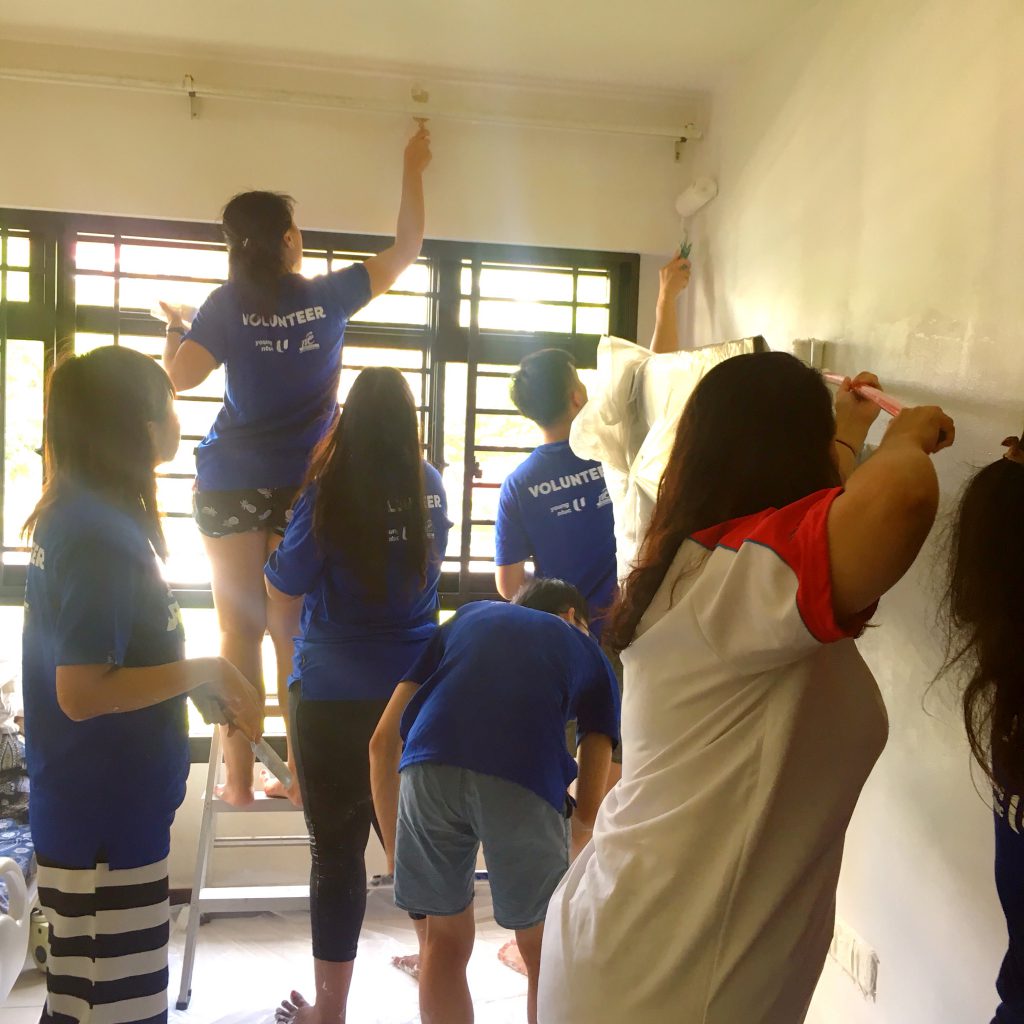
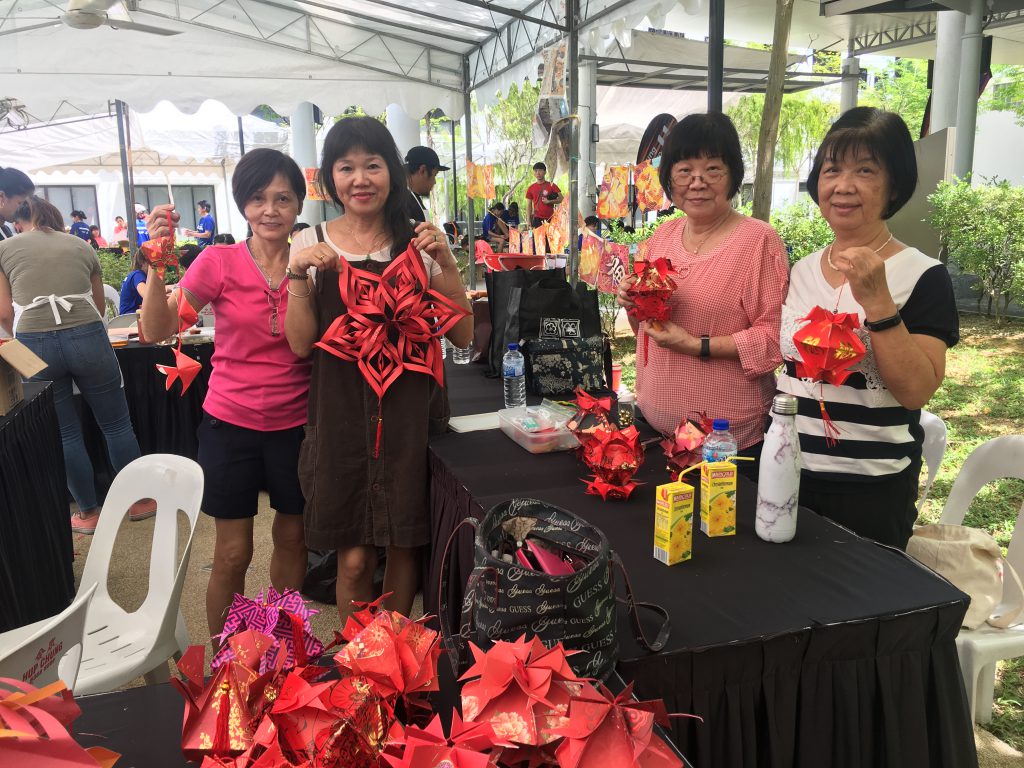
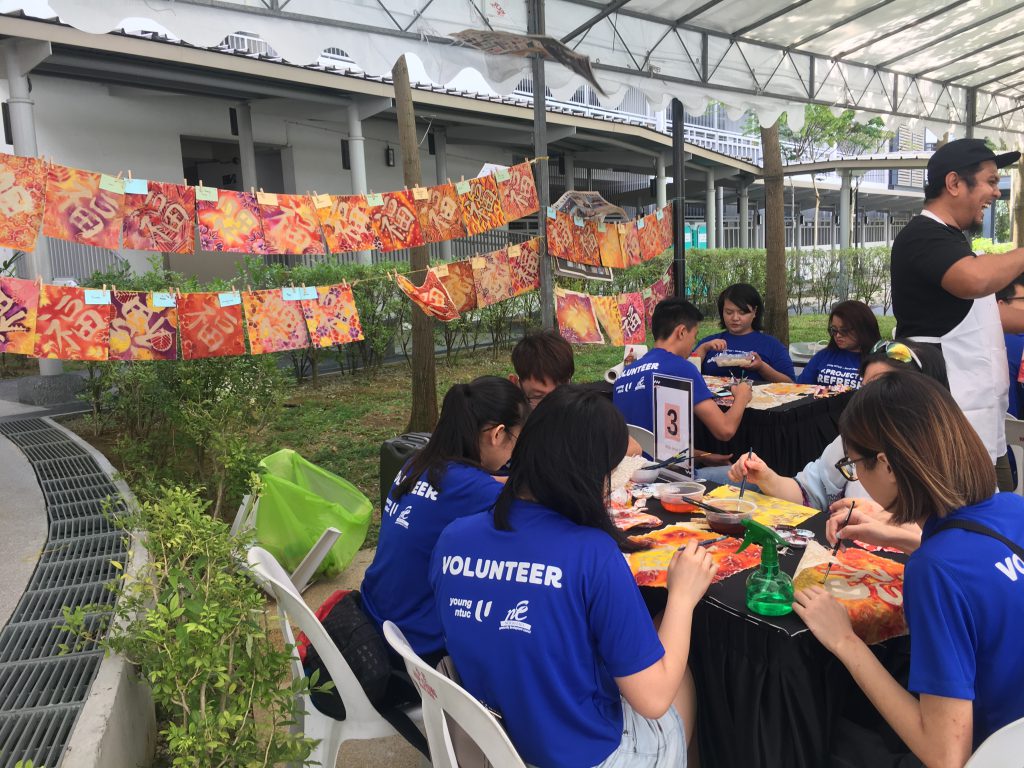
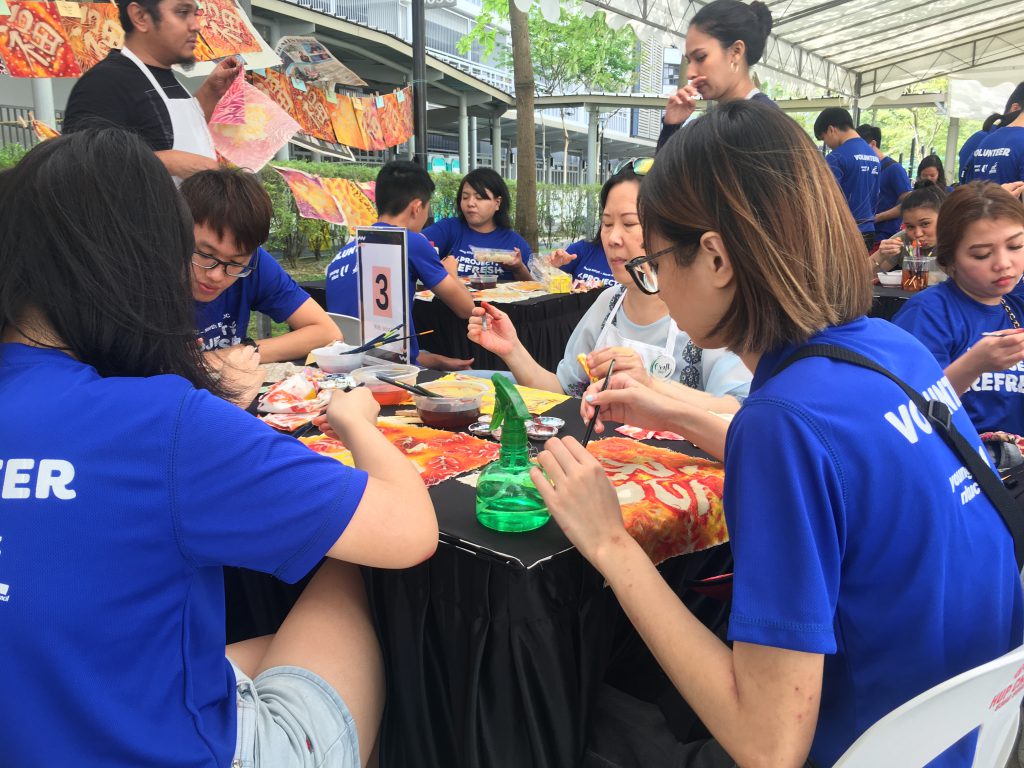
A Reunion Under Lanterns
Molly’s lanterns were later hung at the entrance of Mdm Celeste’s home. The 69-year-old retiree said as she looked up at the lanterns, “I don’t usually put these up,” as she shared about the several falls she has had, and how her bad knee prevents her from taking on any chores that require her to climb or lift heavy loads. Which was why she was especially grateful when a group of bustling volunteers came by to clean her windows, change her curtains, and decorate her home. All of those she had been wanting to do, but are too physically strenuous for her.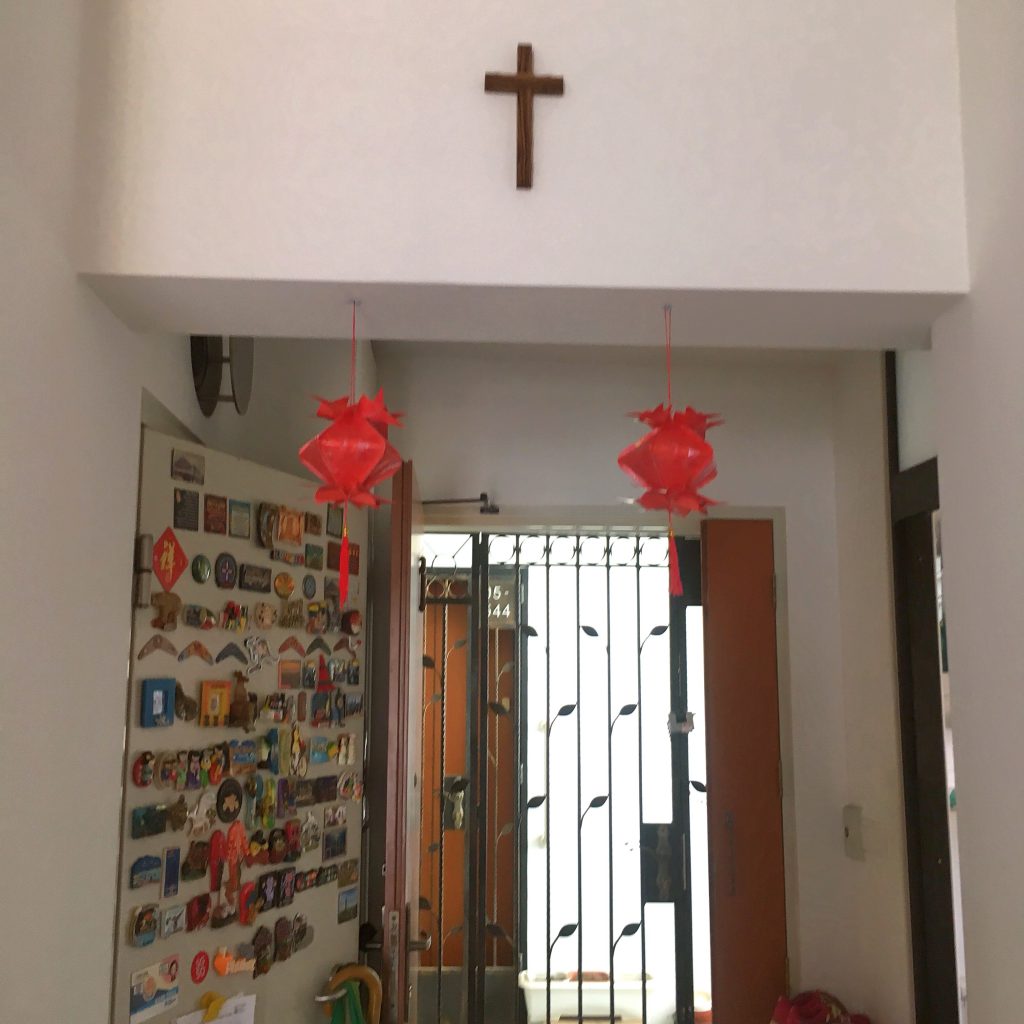
“Talking to people feels very ‘shiok’ you know?”
Beyond lending their helping hand, the company of the Project Refresh volunteers were also a significant part of the project to some of the senior residents, and vice versa. “We came here expecting a lot of clutter and many things to do, but her home is actually quite organised already. I think it’s the company that she really misses,” said 29-year-old Zaki. He volunteered expecting a physically taxing morning, but found himself enjoying the conversations with his 67-year-old resident, Madam Mariam. As the secondary school volunteers moved her carpet and mopped the floor, Madam Mariam spoke heartily about her younger days when she ran a food stall. Her sprightly movements left no hint that she had suffered a stroke just two years ago.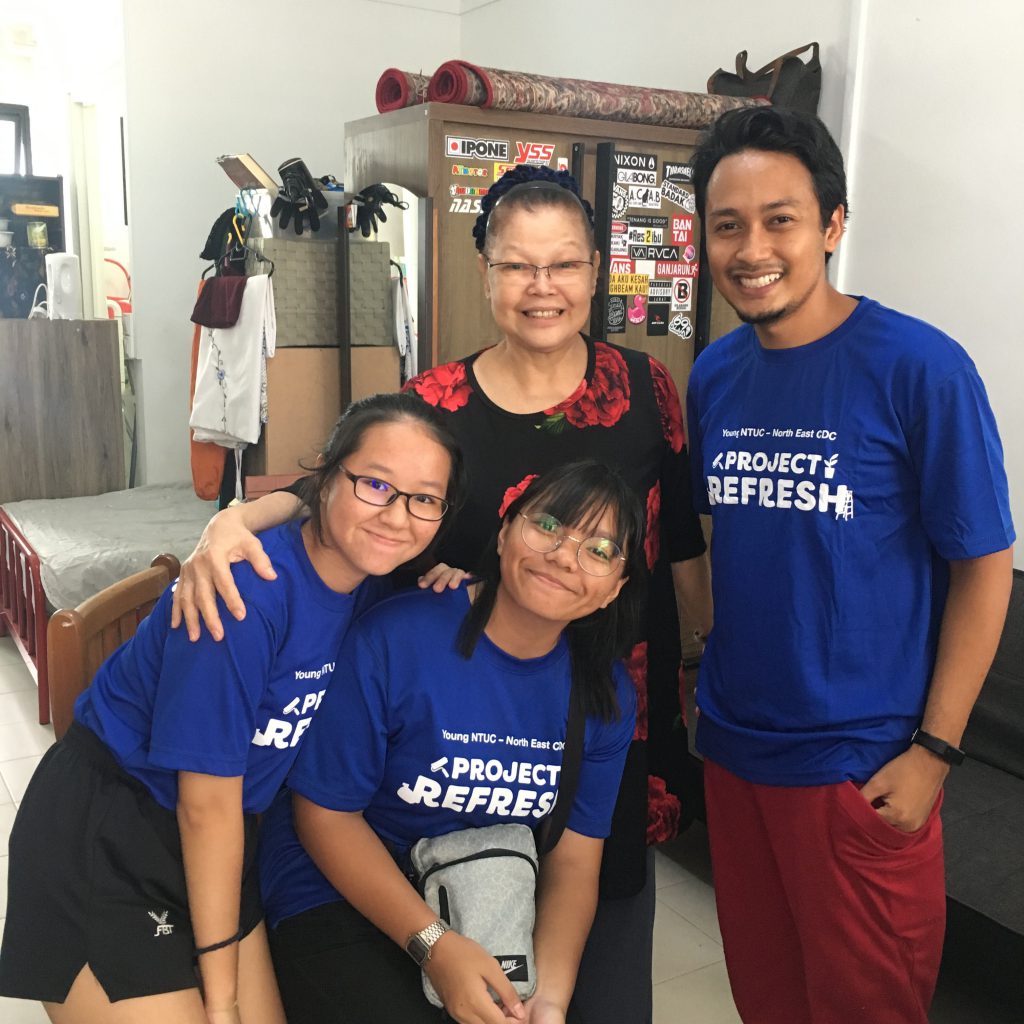
Picking Something Up From The Senior Residents
While the project was directed at giving support to the senior residents, some of the volunteers also found themselves taking away something from the residents they helped. “I have only painted once in my life, for my own house. But it’s patchy,” said Gan, a lecturer and first-time volunteer at Project Refresh. Looking at the patchy paintwork he did for his resident, Abdul Malik’s house walls, he added sheepishly, “just like that.” Little did he know, 64-year-old Malik was actually an apartment painter himself, but has had his movements limited ever since he got a stroke just a few years before. And soon enough, Malik became a painting teacher to Gan and the other volunteers in his home. As he muttered ‘aiyo’s and ‘aiya’s at the inexperienced painters (volunteers) getting paint on their own clothes and even faces, he patiently guided them with technical tips like painting with ‘W’ shaped strokes. “They might not know how to paint properly, but they have the heart. It’s very heartwarming knowing that they can use their morning for anything else but they chose to come here to help. They are very willing to learn also,” said Malik.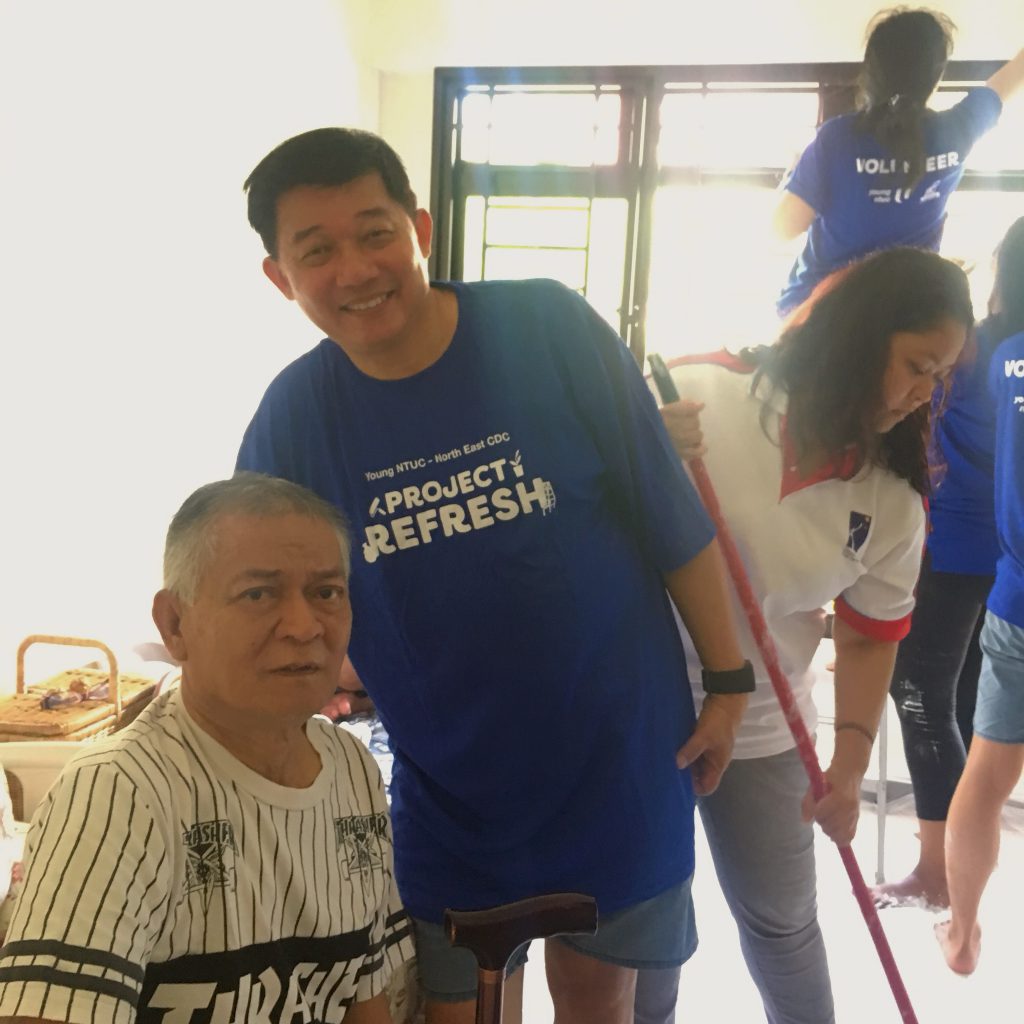
Filling Homes With Warmth
By the end of the day, 96 households received the Project Refresh treatment. In action, the volunteers are there to declutter, clean, paint, and decorate. However, the significance of them there is more than just the physical help. For these senior residents living in isolation, the commotion and presence of volunteers are rare occasions that fills their home with conversations and laughter that they otherwise lack. And for these residents, it was also a perfect start to their Chinese New Year. “They make my house feel like a home,” said Madam Mariam. This article is contributed by Young NTUC. Also read: 65-Year-Old Mdm Rebecca’s Life: A Look At The Reality Of Singapore’s Privilege Gap.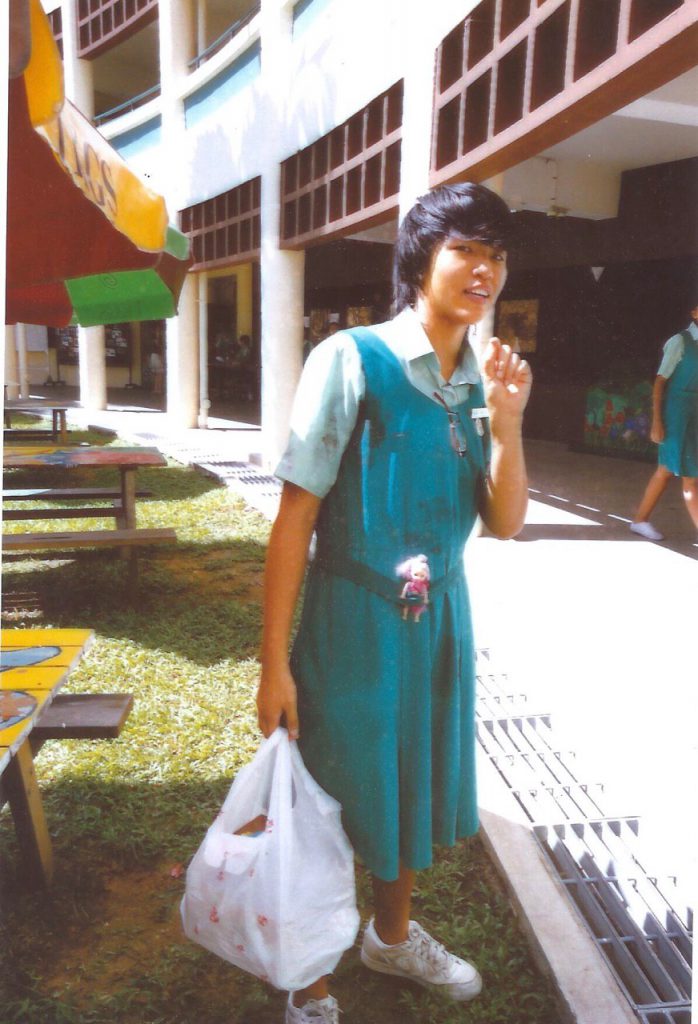
Image Credit: Cassius
How Can I Be Trans And Christian?
I was born into a devout Christian family. The kind where you will see shelves full of Christian paraphernalia the moment you step into our home. My dad is a pastor, and my four brothers and I pretty much grew up in the church. We saw the world through the lens of Christianity, and only through that — where ‘sex before marriage’ and seeking ‘permission’ from the church elders before dating are very normal. In my religion, there is only male and female, and this gender distinction is stated many times in the Bible. As Christian, the message that it is only right for one to be the gender that one is born as is clear as day. So all through my teenage years, I struggled with my gender identity, because even though I am born a female, I didn’t feel like it at all. I hated the way I looked and I hated the way I sounded. The picture I had of myself in my mind differed so much from how I looked like in reality that I dissociated a lot. The way I felt about my body and identity made me very ashamed of myself. I felt inferior all the time and because I lacked self-confidence, I found it really hard to even interact with people. I also doubted myself a lot. I thought that this was just a phase that everyone will go through. That maybe, I was just super anxious about myself and envisioning delusions to escape. The mix of unhealthy and conflicting feelings manifested itself in the way I socialised - I couldn’t. I did not know how to, and did not have a lot of close friends. I also hate bothering people with my problems. All through my teenage years up until I was 23 last year, I kept to myself and internalised all of my negativity.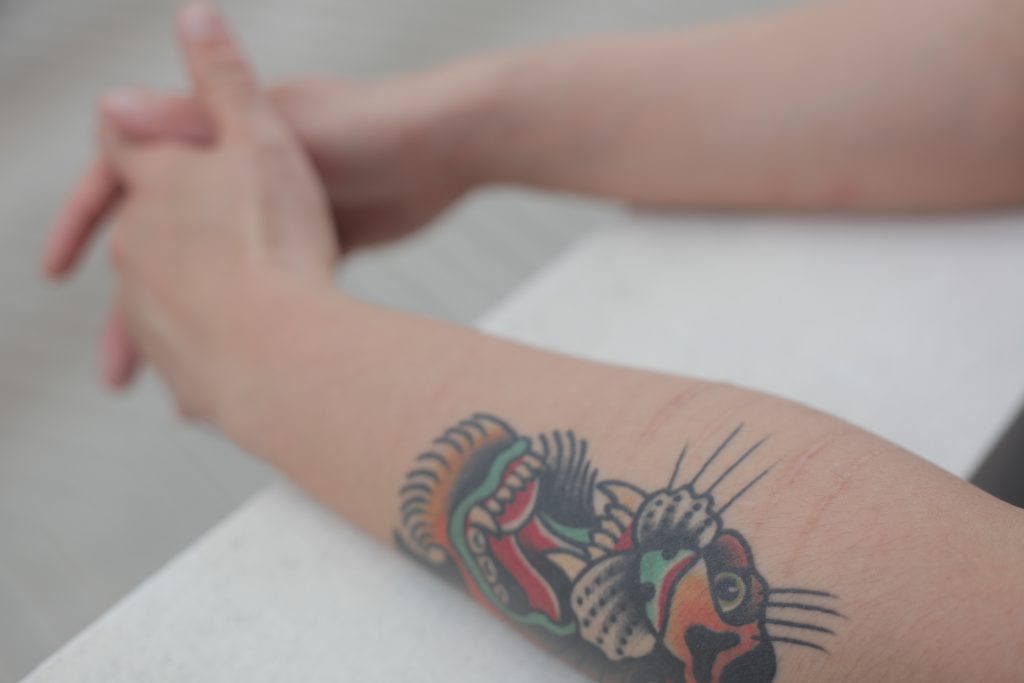
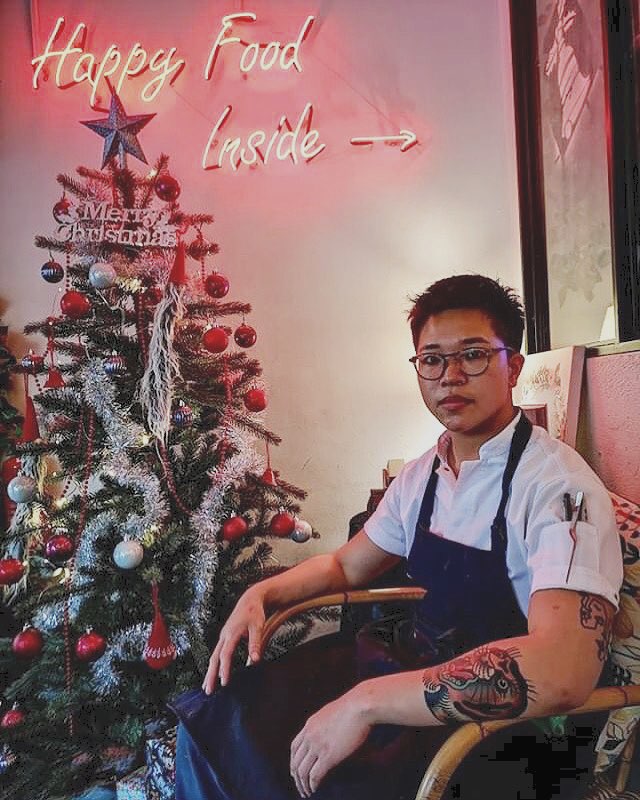
Then, I Came Out To My Parents
My mum was the first to find out. She got very emotional and over our first dinner together after she found out, she kept saying things like “the Bible is my standard, is it yours?” And, “I have a conscience, I hope you do too.” She made it clear that I am someone with no morals if I choose to be this way. That really broke my heart, because I was trying to be truthful and honest with them. I was really hoping to communicate with them, instead of us shutting each other out. When I told her about how I felt, about how I never had feelings for guys, and about all the painful struggles I had internally growing up, all she said was, “are you being honest right now? Why are you lying?”She also once said to me, “people like you never [use to] exist,” and, “people like you put us through so much pain and shame.”My dad told me that he was not going to judge me but God will, and reiterated that he will never ever change his mind on marriage being only between a male and female. I used to be suicidal. Coming out was my way of preserving my life and to respect the life that my parents have given me. Yet, my parents can only see this as my greed — that I am being selfish and trying to hurt them by being transgender. It really breaks my heart to be rejected by the people who brought me up, and whom I still love dearly. It is the very reason why I feared coming out to them in the first place. It is also disappointing that none of my brothers (except for one) ever acknowledged me for who I am either, or to be there for me.
Relearning How To Live Life
I am still trying to come to terms that my family will never accept me for who I am. The rejection still hurts, but I remind myself that it is equally hard for them to process the shock because of the many emotions involved. And I try not to let their rejection get to me. I understand that if i didn’t change my way of thinking, I would have felt the way that they are feeling now — it took me a long time to understand that they are not out to be negative towards me, it is just what they were taught to do. However, I live with guilt every single day knowing that my parents still love me. I see it through their littlest actions: when they ask me if I have eaten yet or when I will be reaching home. This guilt has often made me feel that I am not deserving of all the efforts they have put into raising me. But I know that I want to live true to how I feel. With that conviction, I also know that I have to overlook my parents’ expectations and the expectations that I put on myself. When I made the decision to be openly transgender, my whole belief system was turned upside down. But being forced out of what I am familiar with helped me get out of the pit that I had put myself into all those years.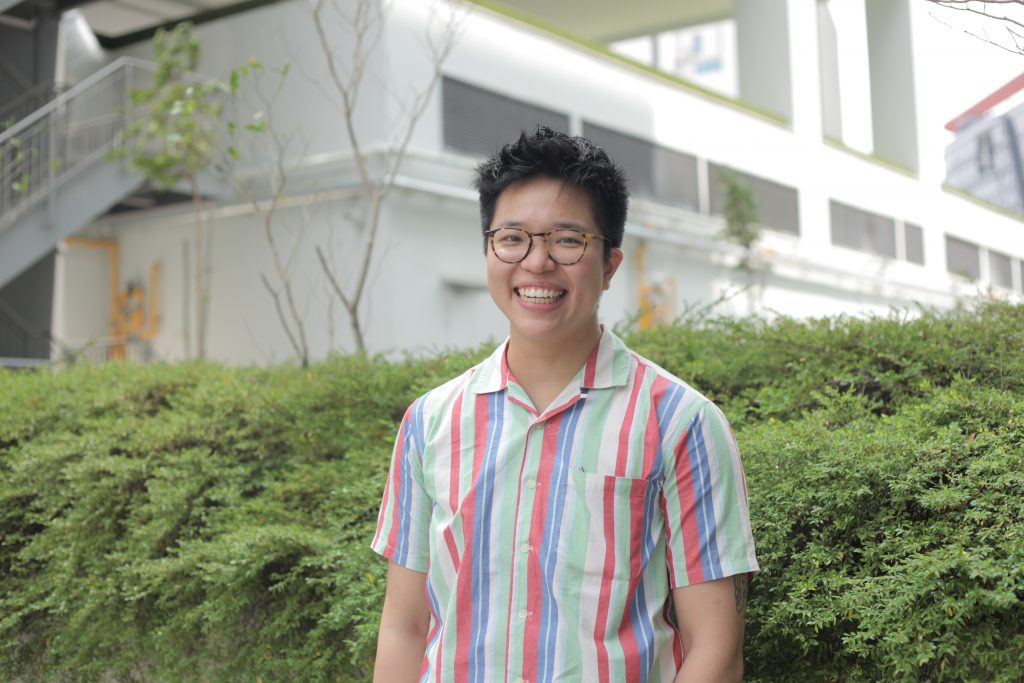 I don’t know if I can ever truly be the person I want to be — someone who is kind, and all the positives — but I think my suffering has really opened my eyes.
The rate of suicide among transgender individuals is very high. Being able to confront my denial and feelings has helped to phase out the many suicidal thoughts I use to have, because I now know who I want to be and how I want to live. Because of what I went through, I am able to persevere. However, there are many, many people who do not have the resources or support they need, and it is very hard for them to break out.
Being able to look inward and confront myself has changed my life, and it is the one thing I hope for those who are going through similar situations: Look within yourself, and learn to be vulnerable.
This story is written by Millennials of Singapore, as told to us by the featured individual.
-
Editor's note:
This is a personal story and not a generalisation of the community. We have included specific mentions of a religion in this article solely for context purposes, the Millennials of Singapore team does not condone religious discrimination and persecution.
Also read: My Sexuality, My Right: “A Stranger Wanted Me To Apologise For My ‘Lesbian Appearance'".
I don’t know if I can ever truly be the person I want to be — someone who is kind, and all the positives — but I think my suffering has really opened my eyes.
The rate of suicide among transgender individuals is very high. Being able to confront my denial and feelings has helped to phase out the many suicidal thoughts I use to have, because I now know who I want to be and how I want to live. Because of what I went through, I am able to persevere. However, there are many, many people who do not have the resources or support they need, and it is very hard for them to break out.
Being able to look inward and confront myself has changed my life, and it is the one thing I hope for those who are going through similar situations: Look within yourself, and learn to be vulnerable.
This story is written by Millennials of Singapore, as told to us by the featured individual.
-
Editor's note:
This is a personal story and not a generalisation of the community. We have included specific mentions of a religion in this article solely for context purposes, the Millennials of Singapore team does not condone religious discrimination and persecution.
Also read: My Sexuality, My Right: “A Stranger Wanted Me To Apologise For My ‘Lesbian Appearance'".THE CASE AGAINST SECRET SANTA
To make gift-giving more “exciting”, someone decided to invent the phenomenon we know today as Secret Santa. In today’s world, Secret Santa has made its place in the modern workplace. If you work in an office, chances are that you have, willingly or not, been a part of this annual office tradition.